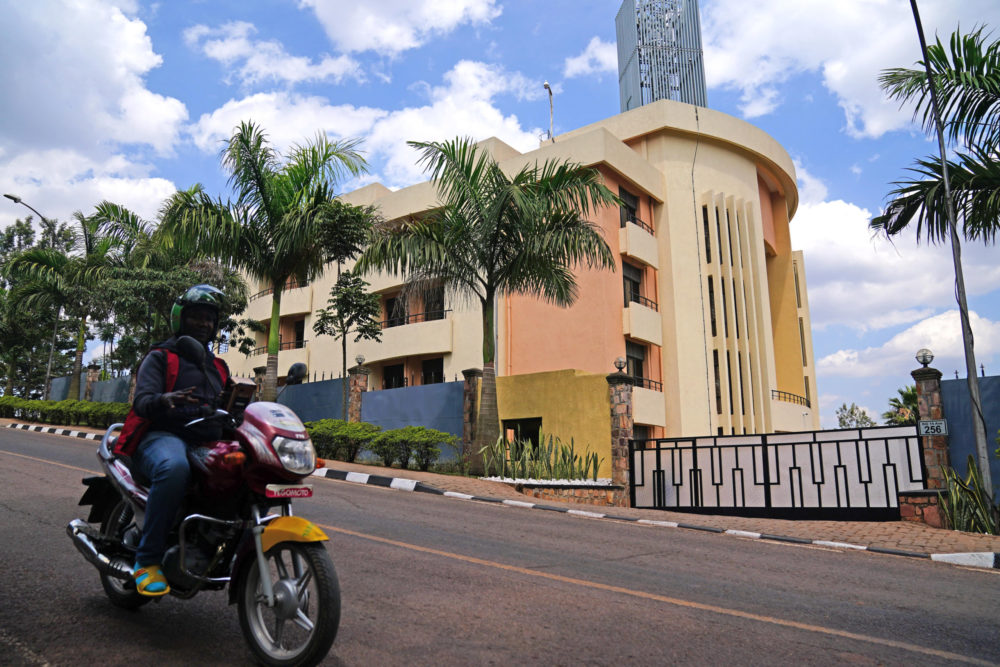UK Government accused of ‘choosing to ignore’ legal advice over Rwanda plan

The UK Government has been accused of “choosing to ignore” advice from senior lawyers over its stalled Rwanda plan.
Described as a rare move in a bid to win over critics, the Government published a summary of its legal position in support of the scheme on Monday.
The document concludes that there is a “clear lawful basis on which a responsible government may proceed” with a “novel and contentious policy”.
But a leading Tory rebel said: “The Government is choosing to ignore advice from senior lawyers that there are good legal arguments for blocking off individual claims and all Strasbourg Rule 39 injunctions.
“Migrants can still make individual claims but these would continue in Rwanda. The Government should ensure that only those who are under 18 or medically unfit to fly are exempt from removal.
“It’s open to Parliament to block or restrict individual legal challenges and the courts will uphold this.”
Summary
The summary of the Government’s legal position said: “The treaty, Bill and evidence together demonstrate Rwanda is safe for relocated individuals, that the Government’s approach is tough but fair and lawful, that it has a justification in the UK’s constitution and domestic law, and it seeks to uphold our international obligations.
“This is a novel and contentious policy and the UK and Rwanda are the first countries in the world to enact it together.
“There are risks inherent in such an innovative approach but there is a clear lawful basis on which a responsible government may proceed.
“For the reasons set out in this paper, a Bill that sought to oust all individual claims would not provide such a basis.”
It said “evidence” will be published on Tuesday which demonstrates Rwanda is a safe country, as MPs prepare to vote on the Safety of Rwanda (Asylum and Immigration) Bill.
Asylum accommodation
The Government estimates the cost of asylum accommodation alone could rise to £32 million per day by 2026, equivalent to £11 billion per year, if “illegal migration goes unaddressed”, the document said, as it argued the case for needing to use “all the powers at its disposal to prevent and deter unlawful migration”.
According to the summary, illegal migration via Channel crossings is a “matter of significant public concern” and this places “substantial additional burdens on to public services”.
It said the Bill is “predicated on both Rwanda and the UK’s compliance with international law in the form of the treaty, which itself reflects the international legal obligations of the UK and Rwanda”, while warning that the country’s government has “also been clear that it would withdraw from involvement in the scheme if the UK were to breach its international obligations, therefore rendering the Bill unable to work in achieving the policy intention of deterrence – as there would be no safe country for the purposes of removal”.
“No-one will be sent into a position where they would face a real risk of harm”, it adds.
The Bill would be the first time in British legal history where the country’s courts would be precluded from considering claims under certain sections of human rights laws.
Legal challenges
But it still allows an “exceptionally narrow route” for migrants to bring legal challenges against their deportation.
There would be a “very high barrier” set for legal challenges, the summary said.
The summary said: “It is not, however, possible for Parliament reasonably to conclude that Rwanda will always be safe for every potential individual liable to removal at any point in the future, irrespective of their specific personal circumstances.
“For that reason, the Bill does allow for an exceptionally narrow route to individual challenge to ensure that the courts will interpret the relevant provisions in accordance with the will of Parliament.
“Not to do so would mean ministers accepting that those unfit to fly, for example those in the late stages of pregnancy, or sufferers of very rare medical conditions that could not be cared for in Rwanda, could be removed with no right to judicial scrutiny.
“In any case, completely blocking any court challenges would be a breach of international law and alien to the UK’s constitutional tradition of liberty and justice, where even in wartime the UK has maintained access to the courts in order that individuals can uphold their rights and freedoms.
“The Bill limits unnecessary challenges whilst maintaining the principle of access to the courts where an individual may be at a real risk of serious and irreversible harm.
“Taken as a whole, the limited availability of domestic remedies maintains the constitutional balance between Parliament being able to legislate as it sees necessary, and the powers of our courts to hold the Government to account.”
Support our Nation today
For the price of a cup of coffee a month you can help us create an independent, not-for-profit, national news service for the people of Wales, by the people of Wales.








Show me the document that has the FULL UK(kk) Constitution on it….